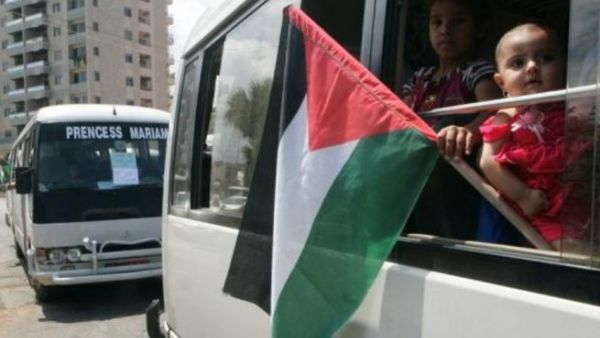Palestinian refugees in Lebanon are managing to find work, despite ongoing obstacles, but largely under exploitative conditions, according to a new study conducted by the International Labor Organization and released Tuesday.
In August 2010, the Lebanese government eased access to work permits for Palestinians, at least for certain jobs – even registered refugees are still barred from syndicated professions – but the study found that Palestinian workers are paid 20 percent less than their Lebanese colleagues for the same job, often in construction and commerce.
“Few work with a written contract and next to none have access to health coverage or enjoy paid holiday time and sick leave,” the report said, adding that “a small number receive a pension or end-of-service indemnity.”
Young, poorly educated, lacking in skills and largely male, Palestinian workers in Lebanon receive less than the monthly minimum wage LL675,000 ($450), with half taking home less than LL500,000 each month.
Of the women who do work, often in the fields of health or education, they tend to be underpaid, despite being more highly qualified than their male counterparts, the EU-funded study showed.
Samir el-Khoury, chair of the Committee for the Employment of Palestinians, highlighted the need to separate the issue of employment from the political debate surrounding the “naturalization” of Palestinians in Lebanon.
“Despite the high hopes built around recent legal amendments toward improving the conditions of Palestinian refugees, tangible gains remain elusive,” a media statement released with the study said.
Only 2 percent of Palestinian refugees in Lebanon have acquired a work permit since they were granted easier access to do so, the report stated, adding that many are occupied in professions that do not require work permits or are unaware of the procedures for regularizing their work status.
The study interviewed 7,212 individuals above 15 years old, from 2,600 households, between September 2011 and March 2012.
Around 280,000 Palestinian refugees live in Lebanon, the vast majority in harsh living conditions.
The survey linked the development conditions of Palestinian refugees to their employment status: “Most are unprotected, with limited labor rights due to legal restrictions, malpractice or bias.
“The lack of access to decent work opportunities exacerbates the cycle of impoverishment and precarious conditions that Palestinians endure.”
The chair of the Lebanese-Palestinian Dialogue Committee, Khaldoun el-Charif said that the Lebanese have a role to play in prioritizing Palestinian rights in their country: “We must strengthen the resolve of the political class and civil society in Lebanon to prioritize Palestinian rights, which is in the best interests of Lebanon.”
The ILO is lobbying to improve access to employment and social protection for Palestinians through a combination of data gathering, policy recommendations and technical assistance to bring Lebanese law in line with international standards, the statement added.
The ILO regional director for the Arab states highlighted the need to tackle the issue with renewed vigor.
“In this new Arab era of social justice, social and economic rights for all should also mean rights for Palestinians in Lebanon. The right to work is about human dignity. They deserve no less,” Nada al-Nashif said.








